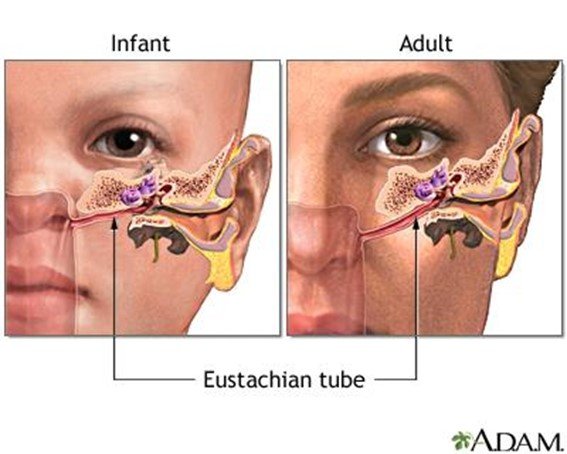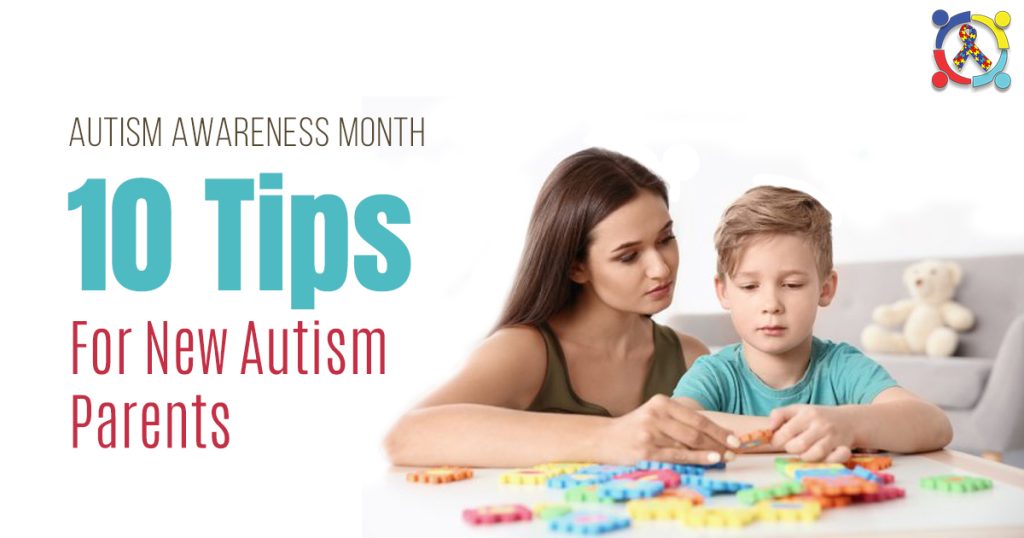Have you ever wondered if your child’s ear infections could be impacting their speech development? You’re not alone.
Many parents are concerned about the connection between frequent ear infections and potential speech delays. Understanding this link could be crucial for your child’s growth and communication skills. We’ll explore how ear infections might affect speech and what you can do to help your child.
Stick around to discover insights that could make a difference in your child’s life. You don’t want to miss this!
Understanding Ear Infections
Ear infections in children can sometimes lead to speech delays. Fluid buildup in the middle ear may affect hearing. This can make it hard for children to hear sounds clearly, impacting their speech development. Early detection and treatment are important to help prevent long-term effects on communication skills.
Understanding ear infections can be crucial, especially when you’re concerned about your child’s speech development. These infections, often painful and disruptive, can affect a child’s hearing, which is vital for learning language. By understanding what causes ear infections and recognizing their symptoms, you can better support your child’s health and communication skills.
Types Of Ear Infections
Ear infections are not all the same. The most common type is otitis media, an infection of the middle ear. This can sometimes come with fluid buildup, known as effusion, which can affect hearing temporarily. Another type is otitis externa, often called swimmer’s ear. This affects the outer ear canal and is typically caused by water remaining in the ear after swimming. Less commonly, you might encounter otitis interna, which affects the inner ear and can impact balance and hearing.
Causes And Symptoms
Ear infections occur when bacteria or viruses invade the ear, often following a cold or respiratory infection. Allergies or sinus infections can also be culprits. When my son had recurring ear infections, we discovered it was often triggered after a cold, leading to fluid buildup that caused discomfort and hearing issues. Symptoms can vary but usually include ear pain, trouble hearing, and irritability, especially in young children. You might also notice a fever or fluid draining from the ear. If you see these signs, it’s essential to consult a healthcare professional. Have you noticed your child tugging at their ear or becoming unusually fussy? These could be early indicators of an ear infection. Addressing these symptoms promptly not only eases discomfort but also safeguards their ability to hear and learn language efficiently.
Speech Development In Children
Ear infections can sometimes affect a child’s speech development. They might struggle to hear sounds clearly, which can lead to delays. Early detection and treatment of ear infections are important to support language skills.
Speech development in children is a fascinating journey. It’s a crucial part of their growth that affects how they interact with the world. As a parent or caregiver, understanding this process can help you support your child’s communication skills effectively.
Stages Of Speech Development
Children typically follow a predictable path in learning to speak. From cooing as infants to forming sentences as toddlers, each stage is vital. Babies usually start by making simple sounds, like “ba” or “da,” around six months old. By their first birthday, most children can say a few basic words such as “mama” or “dada.” By age two, they often string words together to form simple phrases. As they approach three years, their vocabulary expands rapidly, and they start forming complete sentences.
Factors Influencing Speech Growth
Several factors can affect how quickly and effectively a child learns to speak. Genetics play a role, as some children may naturally develop speech faster than others. Environmental influences are also significant. A rich language environment, where children are spoken to frequently and encouraged to express themselves, can boost their speech development. Health conditions, such as ear infections, can also impact speech. Persistent ear infections might lead to temporary hearing loss, making it harder for children to learn new words and sounds. Have you noticed how children mimic the speech patterns of those around them? It’s a reminder of how crucial your role is in shaping their communication skills. What steps can you take to encourage your child’s speech growth? Simple actions like reading aloud, singing songs, and engaging in conversations can make a significant difference. Remember, every child develops at their own pace. Staying informed and proactive in supporting your child’s speech development is key to helping them thrive.
Link Between Ear Infections And Speech Delays
Ear infections are common in children. They can impact speech development. The link between ear infections and speech delays is significant. Fluid buildup in the ear can affect hearing. This may lead to speech issues. Understanding this connection is crucial for early intervention.
How Hearing Affects Speech
Hearing is essential for learning to speak. Children mimic sounds they hear. If hearing is impaired, they may struggle. Ear infections can cause temporary hearing loss. This affects sound recognition and speech patterns. Early treatment is vital for healthy speech development.
Research Findings On Ear Infections And Speech
Studies show a strong link between ear infections and speech delays. Children with frequent infections often have speech issues. Research highlights the importance of treating ear infections promptly. Delayed treatment can lead to long-term speech problems. Early diagnosis and care can prevent these delays.

Credit: www.expressable.com
Identifying Speech Delays
Ear infections can impact speech development by affecting hearing. Frequent infections might cause temporary hearing loss. This can make it hard for children to learn sounds and words. Early detection and treatment are crucial for minimizing speech delays. Parents should watch for signs of speech difficulties.
Consult a doctor if concerned.
Identifying speech delays in children can be a challenging task for many parents. Sometimes, the signs are subtle, making it easy to overlook potential issues. But being aware of these signs can make a significant difference in addressing any underlying problems, such as those caused by ear infections.
Signs Of Speech Delay In Children
Recognizing speech delay involves observing how your child communicates. Children typically start babbling around six months and say their first words by 12 to 15 months. If your child struggles to form simple words or phrases by the expected age, it might indicate a delay. Another sign is difficulty following simple instructions. By age two, most children can understand basic commands like “come here” or “give me the ball.” If your child seems confused or unresponsive to such requests, it could be worth exploring further. Additionally, consider how your child interacts with others. Limited interest in interacting with peers or adults, coupled with a lack of gestures such as pointing or waving, can also signal speech issues.
When To Seek Professional Help
If you suspect your child may have a speech delay, it’s important to act promptly. Consult your pediatrician if your child isn’t meeting communication milestones. They can provide guidance and may refer you to a speech-language pathologist for further evaluation. Trust your instincts. If you feel something isn’t right, it’s better to seek advice sooner rather than later. Delays in addressing these issues could impact your child’s social and academic development. Consider sharing your observations with teachers or caregivers. They can offer additional insights into your child’s behavior and communication, providing a fuller picture to health professionals. Have you noticed any changes after a recent ear infection? This could be a valuable clue in understanding the delay. Early intervention is key. By addressing potential speech delays early, you can help set your child on a path towards effective communication and increased confidence.
Treatment And Prevention
Ear infections can impact a child’s speech development. Understanding treatment and prevention is crucial. Prompt attention helps in reducing potential delays.
Managing Ear Infections
Antibiotics are often prescribed for bacterial infections. They help clear the infection quickly. Pain relievers can ease discomfort. Warm compresses provide soothing relief. Regular follow-ups with a doctor ensure proper healing. In severe cases, doctors might suggest ear tubes. These tubes help drain fluid and reduce infections.
Hearing tests might be needed to assess any impact on hearing. Early detection and management are key.
Preventive Measures For Parents
Keep your child’s ears dry after baths. Moisture can promote infection. Encourage good hygiene to prevent germs. Ensure your child receives all vaccinations. They protect against illnesses that cause ear infections. Avoid exposing your child to tobacco smoke. Smoke irritates the ear and increases infection risk.
Breastfeeding for the first six months can boost immunity. If bottle-feeding, hold the baby upright. This prevents fluid from entering the ear. Schedule regular check-ups with the pediatrician. They help in early detection and prevention.

Credit: www.youtube.com
Supporting Speech Development
Supporting speech development in children is crucial, especially when they face challenges like ear infections. These infections can sometimes impact hearing, which in turn may affect speech development. As a parent or caregiver, you might wonder what steps you can take to help your child grow their speech skills effectively. Let’s dive into some practical strategies that can make a significant difference.
Role Of Speech Therapy
Speech therapy plays a vital role in supporting children with speech delays due to ear infections. A speech therapist can assess your child’s specific needs and tailor sessions to target those areas. They provide expert guidance and structured activities that can boost your child’s speech development.
Imagine sitting in a therapy session where your child is encouraged to pronounce words clearly, using engaging tools like picture cards. These sessions are not only educational but can also be fun for your child. Regular visits can create a positive routine, helping them overcome any speech challenges.
Have you considered how speech therapy could fit into your daily routine? It might be the missing piece in your child’s developmental puzzle.
Engaging Activities For Speech Growth
Incorporating engaging activities into your daily life can significantly enhance speech growth. Simple activities like reading aloud to your child can expose them to new vocabulary. You could also play word games that encourage them to speak and think creatively.
Try singing songs together, emphasizing clear pronunciation and rhythm. This not only improves speech but also strengthens your bond with your child. Additionally, creating a ‘word of the day’ challenge can introduce new words in a fun way.
Have you ever used everyday situations to boost speech development? For instance, narrating your actions while cooking or describing the environment during a walk can be surprisingly effective.
These activities create a rich linguistic environment, promoting speech skills naturally. What unique activities have you discovered that resonate with your child’s interests?

Credit: www.northstarslpc.com
Frequently Asked Questions
Can An Ear Infection Affect Speech?
Ear infections can impact speech development, especially in children. Hearing loss from infections may hinder clear speech. Prompt treatment and regular hearing checks are vital. If untreated, infections might lead to speech delays. Consult a healthcare provider for accurate diagnosis and treatment.
What Is The Most Common Cause Of Speech Delay?
The most common cause of speech delay is hearing loss, impacting a child’s ability to develop language skills. Early detection and intervention are crucial for effective treatment. Other factors include developmental disorders, lack of stimulation, and oral-motor problems. Consulting a speech-language pathologist can provide guidance and support.
Can Ear Infections Cause Developmental Delays?
Ear infections can lead to developmental delays in children. They might affect speech and hearing abilities. Early diagnosis and treatment are crucial for preventing these issues. Regular check-ups with a pediatrician can help manage risks and ensure healthy development.
How Long After Ear Tubes Will Speech Improve?
Speech improvement after ear tubes varies by child. Many see progress within a few weeks to months. Regular follow-ups with a specialist can track progress and address concerns. Speech therapy may also help accelerate improvement for some children. Always consult with healthcare professionals for personalized advice.
Conclusion
Ear infections can affect speech development in some children. Hearing issues may arise, leading to possible speech delays. Early detection and treatment are important. Visit a doctor if you suspect an ear infection. They can provide guidance and solutions. Healthy ears support better speech growth.
Parental attention is key. Stay informed about your child’s health. Understanding the link between ear infections and speech is valuable. It helps you take proper actions. Always prioritize your child’s well-being. Encouraging words and regular check-ups help ensure progress. Remember, early intervention makes a difference in speech development.

